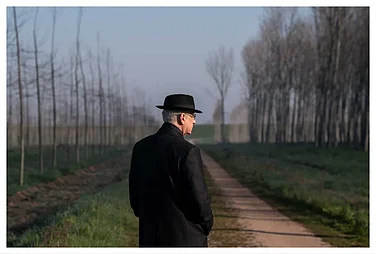IT was supposed to be an evening of entertainment with the main presentation being a play with a biblical theme. But 45 minutes into the play and the secret was out. The flood-ravaged kingdom of a once-prosperous king had found the solution to the communication barrier between itself and God. Indeed there was no need for the Tower of Babel being constructed to get in touch with God and find a way out of the havoc wreaked by the floods. There was Escotel Mobile, one of the two mobile phone service providers for Kerala.
The play was in fact an extended ad, one of the many being staged in Kochy, Kerala, by a group of theatre enthusiasts. Going by the increasing number of companies planning stage productions as part of their marketing campaigns, there is little doubt that the group has hit upon a novel marketing technique to get the message across. Escotel, after the first performance in Kochy last week, is now planning to stage the production in Kozhikode, Thrissoor and Kottayam. Proposals are also being considered to travel to Western Uttar Pradesh and Haryana, the two other circles in the country where Escotel is the service provider.
Earlier during the year, Jagatjit Industries Ltd took a quiz contest audience by surprise with a 20-minute play during a break which was actually an ad for their health drink Malt-ova. And an architects' association of Kochy sponsored a production with social messages to prevent pollution and haphazard development, which had episodes drawn from the Mahabharata. Just as the Hero group, which launched its Hero Winner moped through a contemporary social play in September, is gearing for another production to launch its BMW bike in Kochy. "This new media is proving to be very effective and the audience is quite impressed," says P.N. Gopinath, general manager, MS&S Motors, Hero's outlet in Kochy. "We needed to do something different from the run-of-the-mill product launches for the Hero Winner.
And staging a play to launch the product during the climax was as unique as it could be." The Hero Winner launch production had a contemporary social theme where a young boy goes through a series of failures in life and grows into an adult with a self-perception of being a loser. But at the end of the 50-minute play his double points out that there indeed was hope for him: the new Hero Winner moped, six of which zipped across the stage.
The brainchild of P. Elish, an English lecturer with an M. Phil in theatre and founder of the group Living Theatre, the 'staged commercials' are expensive propositions by theatre standards but not for the companies using the medium. The production for Escotel, which was the most expensive to date, cost the Escorts-First Pacific joint venture Rs 6 lakh—a modest amount compared to that of a commercial for television. The productions have around 40 artistes as in the Hero Winner launch or as many as 90 in the Escotel campaign, 30 of whom were professional dancers. While the actors are drawn from Living Theatre, the audience is a select gathering of around 1,000 invitees who belong to the target clientele for the product or service being pushed. "We have not created a new art," says Elish. "We are just using particular patterns from particular genres of stagecraft and innovating to communicate commercial messages." He is rather embarrassed about his productions being labelled as "commercialisation of theatre", and points out that this form of theatre gives him immense scope for experimentation which is what inspired him in the first place.
Says he: "This is an area where I can allow my imagination to break free while someone else is paying for it." And paying with a purpose too, considering the demand for Elish and his commercial productions.
Adds B. Hariharan, founder-partner of Impresario, the event marketers who manage the collaboration between Elish and the companies: "We will be doing more such productions as not only does it get the message across to the audience, but also entertains and ensures better retention." But instead of establishing a smooth production line of commercial plays, the increasing demand for them is only expected to make the task of Elish's group a tough one. The element of surprise that conveys the commercial message during the climax of the play is the nucleus of the new medium. And to guard the element of surprise from the audience production after production, however diverse it may be each time, will get increasingly difficult as the medium gains popularity. Says Elish, who has till date used Bharat-natyam, stylised settings, models, magic, stunts and even a Macarena performance to ensure novelty: "Retaining the novelty of the innovation will surely be challenging." But going by his penchant for innovation and experimentation, it should not be surprising if that challenge leads to the birth of another novel media.


























